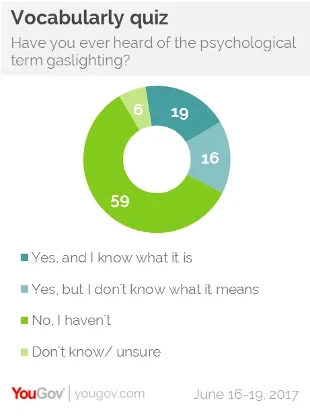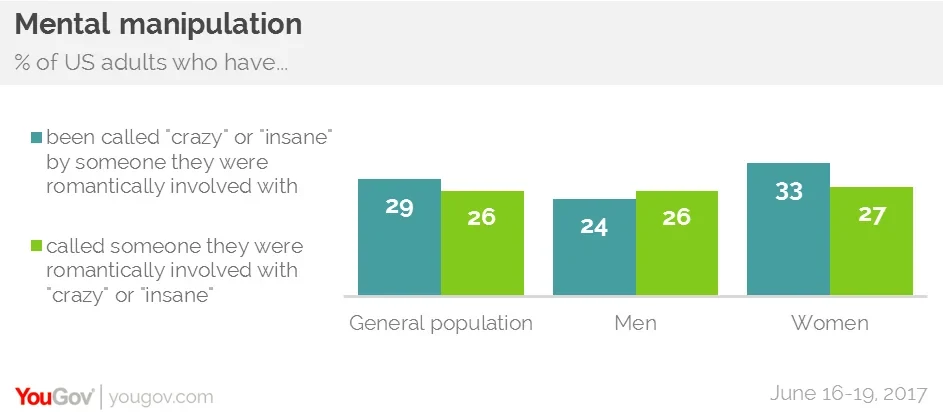33% of females have been called “crazy” or “insane” by a romantic partner
Collateral Beauty. The Girl on the Train. Shutter Island. The list of modern, feature films whose main characters are forced by others to question their own sanity goes on and on. Watching blatant manipulation play out on the big screen is meant to be unsettling, leaving the audience with a lingering sense of paranoia, and, ultimately, relief in knowing that what they have just witnessed is only a fictional tale. However, this sort of psychological abuse is not merely imagined for cinematic flare, in fact, it is called “gaslighting” and is very much a real-life phenomenon.
However, despite its prevalence in entertainment and the media, new YouGov data shows that a 75% majority of US adults have never heard the term before—or have heard the term but don’t know what it means. Only 19% know the definition of gaslighting.

While gaslighting can take on many different forms, it is commonly associated with romantic relationships. Specifically, gaslighting often manifests during arguments when one person in a couple accuses the other of being “crazy” or “insane” in order to not only weaken their significant other’s credibility, but force them to doubt their own logic. A third of females, and 24% of males, have been called crazy or insane in a serious manner—out of anger, during an argument, etc.—by a romantic partner.
Regardless of how many individuals have had their psychological stability challenged, nearly the same number of individuals have personally participated in this type of gaslighting—roughly a quarter of men and women (26% and 27% respectively) have accused their significant other of being crazy or insane.

The great debate has long been whether emotional pain, which we cannot see or reach out and touch, can possibly be as consequential as physical suffering. The majority of Americans don’t think there has to be some great divide between the two, 71% of US adults believe that both physical and psychological abuse should be taken with equal seriousness.
Perhaps these numbers reflect the large number of individuals who have personally experienced psychological abuse. Nearly half of women, 46%, have been psychologically abused at some point during their lifetime, as well as almost a third of males—32%.







